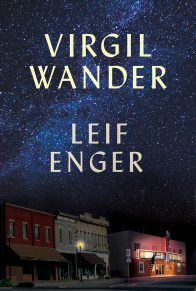My mystery book group decided to read this classic by Raymond Chandler (c. 1953) for our next meeting. I have not read anything of his in forever, and although it's a bit dated, the writing holds its own. Philip Marlowe unintentionally gets involved with the upper class when he rescues an elegant drunk in front of a night club, after the man's date dumps him out of the car and drives off. Terry Lennox seems a gentle soul and the heartless woman is his wealthy ex-wife. When next they meet, Terry has remarried her and he's just come to have a drink with Marlowe. They do this occasionally over the weeks and then Terry shows up and asks Marlowe to drive him to Mexico. He tells Philip a hypothetical story about a man killing his wife and needing to disappear. Since Marlowe's number was written on a pad of paper at Terry's, the cops come for Marlowe and make his life miserable until word reaches the police that Lennox wrote a confession and killed himself in a little village in Mexico. Subsequently, Marlowe is contacted by a New York publisher who wants him to babysit a pulp fiction writer, Roger Wade, and keep him from getting drunk or striking his wife until his next book is finished. Marlowe refuses the job, but is sucked in when the wife calls and says her husband has gone missing. It turns out that these two cases are very much entwined. Powerful people, from gangsters to newspaper magnates to the cops themselves, want Marlowe to keep his nose out of it.
Marlowe is a loner with his own set of principles and a drive to get to the bottom of everything. You'll enjoy riding along with him.
A retrospective review from The Independent (Jan., 2016) says of this book "if not the best or most technically accomplished of the Marlowe novels, [it] is without question my favourite."
Marlowe is a loner with his own set of principles and a drive to get to the bottom of everything. You'll enjoy riding along with him.
A retrospective review from The Independent (Jan., 2016) says of this book "if not the best or most technically accomplished of the Marlowe novels, [it] is without question my favourite."




